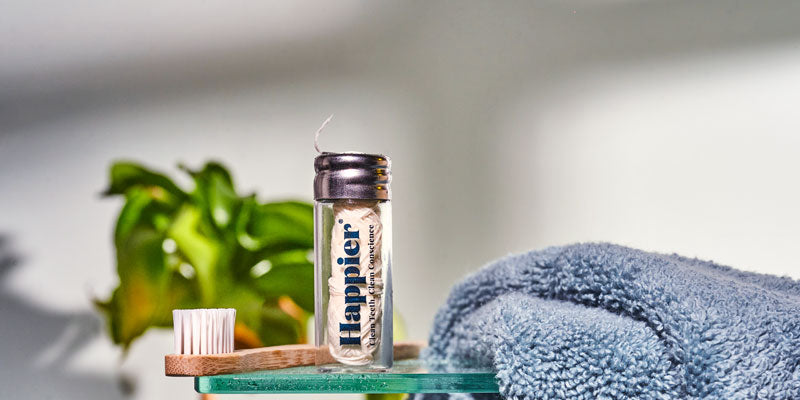Do you sometimes forget to floss? Well, it might be more important than you think! Here are 5 reasons why you should make flossing a daily habit:

- Removes Plaque and Food Debris
Dental flossing is a critical tool in plaque removal, reaching areas between teeth where toothbrushes can't penetrate. As food and debris build up between the teeth, they form a hardened layer called tartar that can cause long-term damage to your teeth. Removing this daily is a great way to keep your mouth fresh and the dentist away! - Prevents Gum Disease
As food builds up on your gumline, so do the bacteria living near your gums. By incorporating flossing into your routine, you can remove bacteria and decaying food, significantly reducing the risk of gum disease. - Reduces Bad Breath
Bad breath, also called halitosis, can result from lingering food particles and bacteria trapped between teeth. Flossing not only removes these culprits but also infuses a refreshing touch of mint, leaving your breath revitalized and your mouth feeling clean. -
Protects Against Tooth Decay
We know that brushing our teeth is important, but it often isn’t enough to give our mouths a thorough clean. According to the Oral Health Foundation, teeth brushing only reaches around 60% of the surfaces of our teeth, with those tricky parts in between teeth difficult to reach with bristles alone. That’s why flossing every day as part of your oral routine is recommended to maintain oral health. Flossing helps prevent decay by eliminating plaque buildup in these hard-to-reach spots. With consistent use, you can safeguard your teeth against decay and maintain optimal oral health.
With the Happier Biodegradable Floss, you can achieve these goals while minimizing your environmental footprint. Let's commit to eco-friendly flossing and embrace a brighter, healthier future for both ourselves and the planet.
